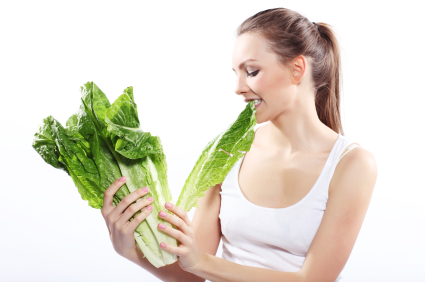The New Vegetarians
 Whether it’s to save the earth, money or their waistlines, more Americans are cutting back on meat. Should you elevate vegetables from sidekick to leading role? Here’s all you need to know to make meatless eating work for you.
Whether it’s to save the earth, money or their waistlines, more Americans are cutting back on meat. Should you elevate vegetables from sidekick to leading role? Here’s all you need to know to make meatless eating work for you.
Vegetarianism is having a moment
When former President Bill Clinton showed up to daughter Chelsea’s wedding looking slim and trim, he credited his strict vegetarian diet for his transformation. Meanwhile, talk show host Ellen DeGeneres recently gave up animal products, publicly declaring herself a vegan.
These two high-profit Americans have plenty of company in the meatless movement. Sure, countless others still hold onto childhood Brussels sprout biases; according to the Centers for Disease Control and Prevention, just 26.3 percent of adults eat vegetables three or more times per day. But signs suggest that the number of herbivores in the U.S. is on the rise. For example, last November the Academy of Nutrition & Dietetics issued its first-eve guidelines for dietitians who are counseling vegetarians. With efforts like Meatless Mondays, a campaign to cut meat consumption to improve personal and environmental health, gaining momentum, nearly 20 percent of households are eating more meatless meals, reports the Food Marketing Institute. Some cite saving money as the primary driver, but most say they’re cutting down on meat to improve their health.
Scaling back on meat won’t necessarily net you better health or a svelte body. And let’s be clear: Going meatless won’t miraculously melt off extra pounds. However, swapping plant -based foods for animal-based ones will often save you calories and fat grams, and may make meeting your goal weight easier. In general, vegetarians weigh 3 to 20 percent less than meat eaters, according to an analysis published in Nutrition Reviews. What’s more, other studies link a well-planned vegetarian diet with a lower BMI and a wealth of health benefits, including reducer risks for cancer and chronic disease. The emphasis here is on the phrase “well-planned”. If you end up substituting meat with high fat options like cheese, your health bonuses are nil.
With that, here’s some freshly picked info for exploring the veggie landscape in a way that’s healthy and delicious.
Get what you need
Afraid you won’t get enough nutrients if you cut out meat? Most lifelong carnivores feel they need meat and other animal products for god nutrition, but that’s not the case. You can get key nutrients (and promote good health) from these plant-based sources.
Nutrient: Plant-based sources
Protein: Beans, lentils, nuts, seeds, nut butters, peas, whole grains and soy-based products (tofu, tempeh, veggie burgers)
Iron: Fortified cereals, spinach, kidney beans, black-eyed peas, lentils, turnip greens, soy products, whole wheat breads and peas.
Omega-3s: Flax and other plant sources provide some, but not enough; if you don’t’ eat fish, consider an algae-derived DHA supplement.
Calcium: Fortified soymilk, cereals and orange juice; tofu made with calcium sulfate; dried beans and peas; nuts; seeds; some greens.
Vitamin D: Fatty fish, egg yolks, mushrooms (especially mushrooms treated with UV light, available in supermarkets), fortified cereals.
So you call yourself a Vegetarian?
The vegetarian spectrum runs the gamut from those who eat meat occasionally to raw foodists who will not consume anything cooked above certain temps. Below, a veggie glossary, from least to most extreme.
Flexatarian (Semi-vegetarian): Eats mostly plant-based foods; occasionally eats animal products as well as fish, poultry or meat.
Pollo-vegetarian: Eats poultry, such as chicken, turkey and duck.
Pescetarian: Eats fish and seafood, but no meat.
Lacto-ovo Vegetarian: Eats dairy products and eggs.
Lacto Vegetarian: Eats dairy products.
Classic Vegetarian: Eats diet of vegetables, fruits, grains, nuts; no meat, poultry or fish.
Vegan: Follows a strict vegetarian diet that excludes animal-derived products like butter.
Raw Foodist: Eats no plant-based foods heated above 115 to 118 degrees.

